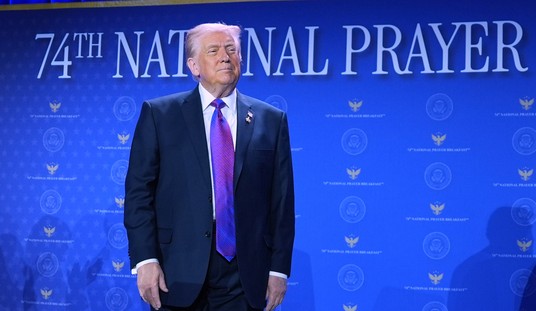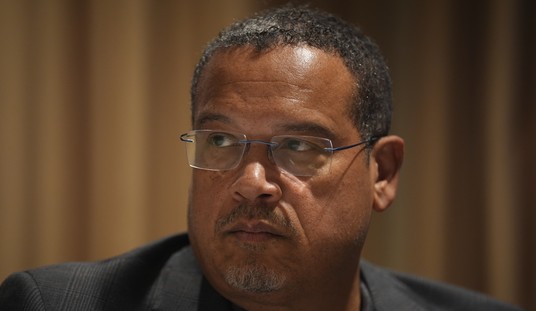Foreign Policy had a story about our intelligence failures last week too but I’m still not persuaded. Was this really a matter of not seeing ISIS coming, or was it a matter of seeing it but not being able to do much about it?
Lawmakers from both parties and even some non-partisan analysts say the Obama administration should have better anticipated the rise of Sunni militants, who captured Iraq’s second-largest city last week and could pose a terrorism threat both within and outside the country’s borders…
“It was very clear to people how bad these guys are,” Michael Leiter, a former top counterterrorism official in both the Bush and Obama administrations, said in an interview. “I don’t know if this was a tactical error or an intelligence error.”
Any question about the group’s capabilities or intentions should have been answered when the militants took Fallujah in January, Leiter said.
“I think our intelligence has failed us miserably, from not being aware of the threat that we’ve faced and how this could unfold as quickly as it has. This has been planned for quite some time,” Sen. Joe Manchin, a Democrat from West Virginia, said on NBC’s Meet The Press Sunday. “My first thing to recommend to the president is get your intelligence group back on track, making sure that we have the intel that we need for whatever options we have, that are going to be accurate.”
Contrast that with this passage from The Hill. Date: October 30, 2013, seven and a half months ago.
The teaming of al Qaeda’s Iraqi cell and affiliated Islamic militant groups in Syria into the new Islamic State of Iraq and al-Sham (ISIS) has developed into “a major emerging threat to Iraqi stability . . . and to us,” a senior administration official told reporters on Wednesday.
“It is a fact now that al Qaeda has a presence in Western Iraq” extending into Syria, “that Iraqi forces are unable to target,” the official said.
That growing presence “that has accelerated in the past six to eight months” has been accompanied by waves of bombings and attacks that threaten to throw Iraq into a full-blown civil war.
Yup, pretty much. Two months after that story appeared, ISIS seized Fallujah, which must have settled any lingering doubts within the IC about how dire the threat was. At the end of April of this year, six weeks or so before ISIS took Mosul, Reuters reported that the U.S. was quietly expanding its intelligence presence inside Iraq and holding “urgent” meetings in Washington and Baghdad on how to counter ISIS. All of which is to say, the big push south towards Baghdad didn’t sneak up on us. On the contrary, intel experts have been warning since day one of the Syrian civil war that the longer it dragged on, the more certain it was that Sunni jihadis fighting Assad in the north would begin to leak south into Iraq and cause problems there. Nor was it any secret that Maliki’s antagonized the Sunnis in Anbar by trying to assert Shiite hegemony in Iraq rather than build coalitions. Go figure that a heavily armed, battle-tested Sunni jihadi force might be able to advance quickly in territory controlled by a Sunni minority that hates the government in Baghdad.
This seems to me, then, not so much an intelligence failure as a case of the White House not knowing how to react. Obama wanted to hit Assad last fall to punish him for using chemical weapons and maybe create some space for, ahem, “moderate” Syria rebels to advance, but he gave up when he saw there was no support for it in Congress. He’s spent years weighing whether to arm the “moderates” there to act as a bulwark against Assad on the one hand and jihadi rebels on the other, but there are few moderates to be had and the ones who are there are in disarray. Any weapons you send them are likely to end up controlled by ISIS, just as ISIS now controls U.S. arms and machinery that it captured in Mosul from the Iraqi army. And of course, a guy who got elected in 2008 promising to end the war and bring the troops home wasn’t about to intervene against ISIS on the other side of the border in Iraq until the threat became truly grave. As grave it is right now, there’s still little appetite among the public for doing anything militarily to save Baghdad, despite loads of TV news coverage about it. Imagine how little appetite there would have been in, say, February if O had announced we needed to start bombing again in Iraq to halt ISIS’s advance before they reached Mosul.
If there’s a big intelligence failure here, I think it has less to do with ISIS than with the Iraqi army. Apart from all the political reasons not to intervene, Obama may have been counting on the fact that if ISIS pushed too far south, the Iraqi army would answer the bell and the Sunnis who helped oust Al Qaeda in Iraq as part of the “Awakening” years ago would join them. Hasn’t worked out that way. Iraqi troops who felt no loyalty to the government deserted and local Sunnis who, you would have thought, had learned their lesson after welcoming jihadis to counter the U.S. occupation decided to welcome them again. That’s the part that seems to have caught U.S. spies off guard. How come? Observers have been grumbling for years that Maliki’s sectarian approach was going to break the country apart. Watching parts of the army disintegrate under pressure is a symptom of that. There wasn’t much we could have done at this point to stop it, but not to anticipate it is bizarre.
Update: Ed e-mails with a good point:
One point about the tribal leaders switching sides. We convinced them to do that the first time against their usual Sunni interests in the Anbar Awakening, in part by at least hinting that we’d be around for the long haul against both the extremists and as a moderating influence on the Shi’ite-majority government. We bailed on both of those explicit or implicit promises, and without that, their instincts are to ally with the Sunnis no matter what. I’d say they’re learning the correct lesson, unfortunately.
A foreseeable consequence of America’s departure. Not an intelligence failure.








Join the conversation as a VIP Member